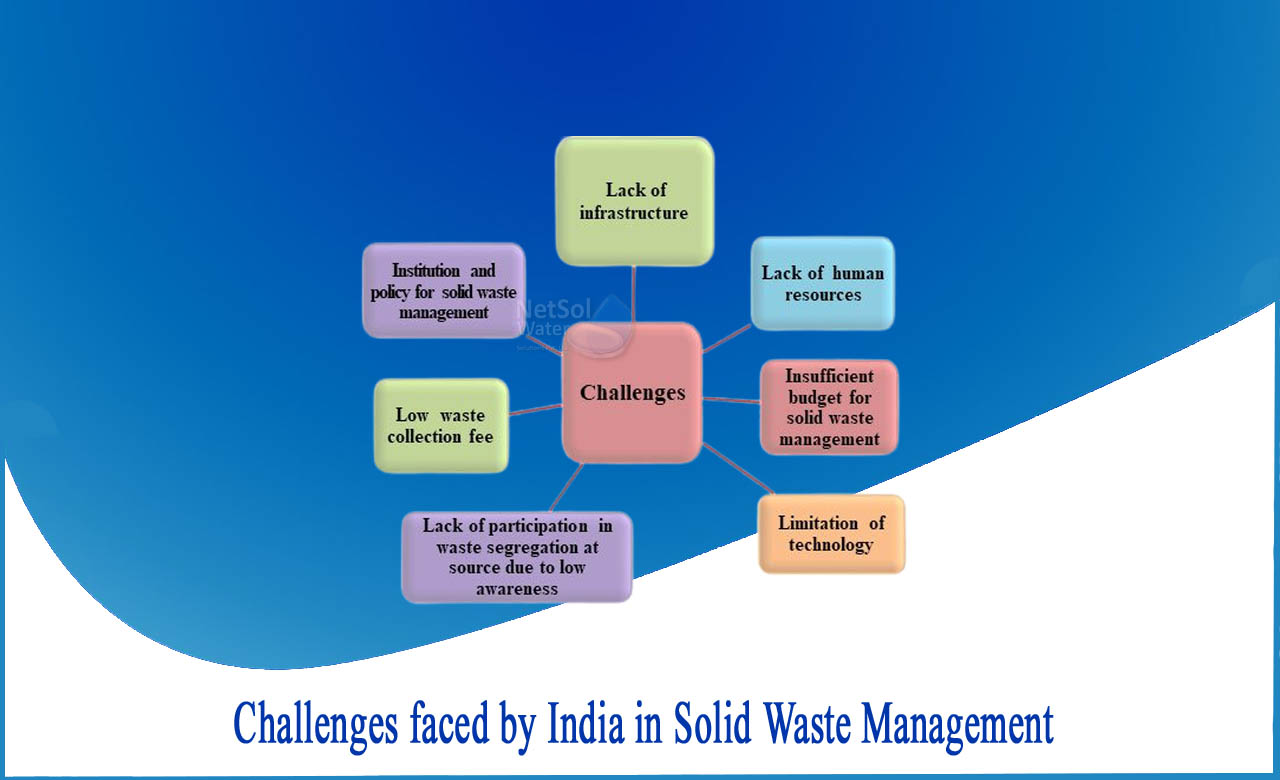India's waste management regulations are based on the principles of "sustainable development," "prevention," and "polluter pays." These principles require municipalities and commercial enterprises to act in an environmentally friendly and responsible manner restoring balance when hampered by their actions. The increased generation of waste as a by-product of economic development has led to the enactment of various subsidies that regulate the types of waste disposal and handling under the Environmental Protection Act (EPA) of 1986. Certain types of wastes are subject to individual regulations, require individual regulations primarily in the form of permits, and maintain records and appropriate disposal mechanisms.
Challenges in Solid Waste Management:
1. Waste Separation-Still Disturbed
Waste management in the metropolitan area is disrupted. Only the New Delhi Municipal Corporation has advanced the waste scenario and the other MCDs are far behind. To date, only Delhi city has generated about 10,500 tonnes of waste, most of which has been disposed of directly in landfills. In addition, the problem is that the MCD is not well prepared for waste management. For example, the crore that every company spends on installing the twobins system. But how would this money be spent if there was no separation in the source to this day? When Delhi is in such a state, other parts of India is lacking in every aspect of solid waste management.
2. Waste to Energy Plant
Waste power plants do not really help generate energy when the energy giving waste is only 13% of total of Delhi’s waste. The rest can be organically processed or recycled. However, to treat only 13% of the waste, the capital has built three WTE plants with a capacity of almost 50% of municipal waste, a fourth without knowing where the high calorific waste will come
For proper SWM,Delhi needs a hybrid solution. Ideally, the landfill should be used for waste and inert substances, which should be transported with the waste to the energy plant. However, because the city's landfills are filled with mixed waste, entering these facilities does not really work as a solution to the city's waste problem.
3. Municipalities do not consider all areas
The garbage problem in Delhi cannot be overcome by the system that’s running. The current problem is that waste management is limited to residential colonies, homes, and markets. How does one get rid of waste if it stays away from areas like the slums, where lakhs of people live in small areas?
In addition, the main cause of ineffective waste management systems is currently being ignored, so municipalities need to initiate the involvement of rag pickers. When these two things are done, the burden of waste disposal on capital is reduced.
4. Lack of holistic waste management plan
India does not have a 360-degree waste management plan. Still, there are areas today that complain about not having access to facilities of waste pickup from locality or door to door. In addition, since there are no facilities or laws for separating garbage, citizens do not separate it. We need to plan for waste management. We need to make sure that the inhabitants are fully trained in the documents they need to follow and that our plumbers are not ignorant. You also need to consider how to dispose of the separated waste.




